June 4, 2025 | 12:46 GMT +7
June 4, 2025 | 12:46 GMT +7
Hotline: 0913.378.918
June 4, 2025 | 12:46 GMT +7
Hotline: 0913.378.918
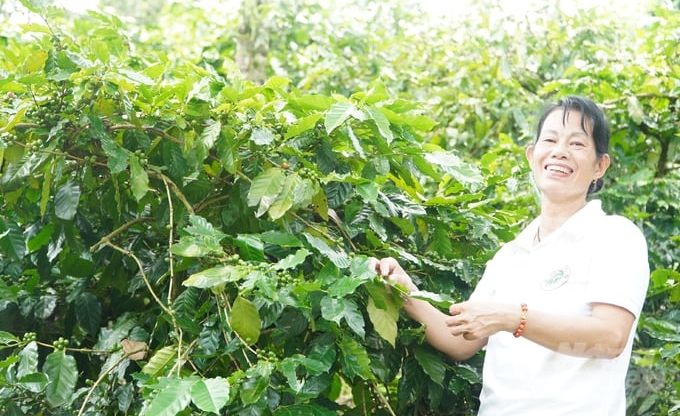
Coffee is one of the main crops in Quang Tri, with an area of over 3.7 thousand hectares and an output of 4.4 thousand tons/year. Photo: Vo Dung.
Coffee is the main crop in Quang Tri province. However, coffee prices have been low for a long time, and many coffee areas here have been converted to other crops. Some places are "abandoned", old, and devastated. Thanks to the replanting program and warming prices, coffee gardens in Quang Tri have been revived in recent years.
Mr. Nguyen Duy Phuong, a coffee grower in Huong Phung commune, said that in recent years, encouraged by local authorities and businesses, some families have switched from traditional farming to chemical fertilizers to organic, natural farming methods to export. Many coffee gardens are planted with shade trees and use organic fertilizers and microbial products. Some businesses in the area are willing to purchase coffee grown organically and naturally at prices higher than the market ceiling price.
After cutting down old coffee roots, Mr. Phuong's family also organically planted 2 hectares of coffee. In the middle of the coffee garden, Mr. Phuong grew durian as a shade tree for an additional income source.
According to Mr. Phuong, the difficulty for coffee growers is that they do not understand the process of growing organic coffee. Uncertain coffee prices also put clean and specialty coffee growers in trouble. Therefore, people are not interested when some businesses raise the issue of linking organic and specialty coffee growing.
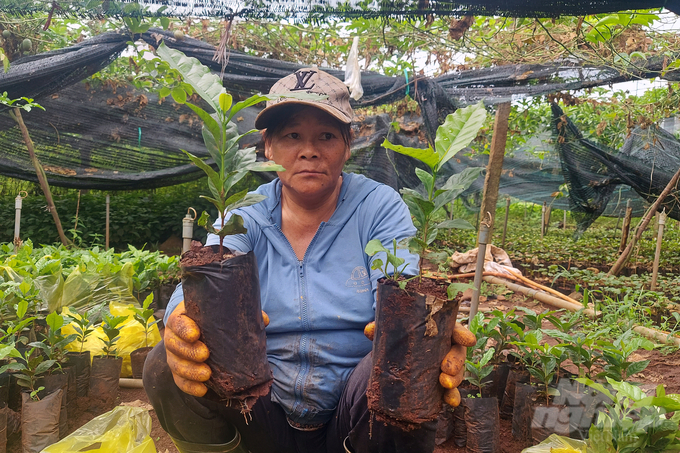
Quality must be built from the origin to processing and marketing to increase coffee export output to improve value gradually. Photo: Vo Dung.
"In Huong Phung, the area planted organically is currently not much. People currently do not have the conditions to grow coffee to meet export needs. That will lead to low value from coffee trees," Mr. Phuong said.
Another thing is that in Quang Tri, there is currently no business strong enough to become a big partner of farmers. Ms. Nguyen Thi Thao, owner of a coffee purchasing and processing facility in Cop Village, Huong Phung commune, said that at times, Huong Hoa district alone had up to 20 coffee purchasing and processing facility owners. Still, now there are only 6-7 units in operation. There is almost no connection between these facilities and the people. Farmers, because of their strength, do their own thing. There are times when businesses do not have enough purchasing and processing output, especially high-quality coffee.
According to Ms. Thao, more support policies are needed for local businesses to grow and increase export output. We must create stable, quality raw material areas to improve coffee tree quality gradually. Farmers not only access policies through coffee replanting programs but also need capital support for basic, long-term investments.
Quang Tri currently has over 3.7 thousand hectares of coffee, mainly Arabica coffee, most concentrated in Huong Hoa district, including 145 hectares of specialty coffee. Despite having an annual coffee output of 4.4 thousand tons, this locality only exports over 100 tons/year, mainly through Slow Coffee Company. The remaining amount is consumed domestically, so the value is low, and coffee growers still face difficulties.
Ms. Nguyen Hong Phuong, Deputy Director of the Department of Agriculture and Rural Development of Quang Tri, said coffee productivity and quality are still low. The area growing coffee certified according to export standards is still limited. The connection between businesses and people in raw material areas is not sustainable or much. In the area, no businesses are strong enough to invest in science and technology for deep processing synchronously, create products with high added value, develop brands, and export.
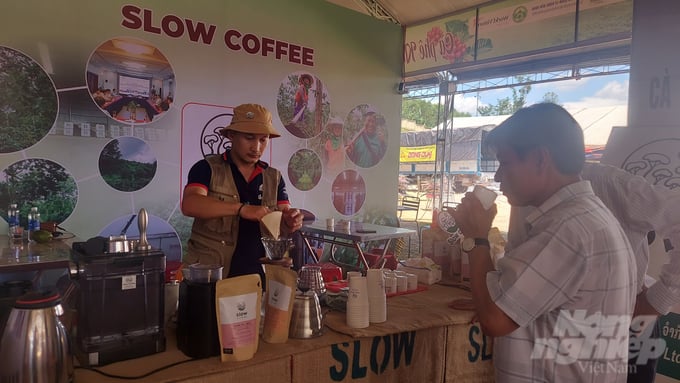
Through Slow Coffee Company, coffee export output in Quang Tri province is only about 100 tons/year. Photo: Vo Dung.
According to Mrs. Phuong, to increase production output, the coffee industry still has a lot of work to do. Coffee processing enterprises must restructure towards linkages to create raw material areas that meet world quality standards. Farmers need to comply and commit to adequately implementing signed contracts. In coffee-growing localities, people need to link farmers together in cooperative groups and hobby clubs... to do business together and share experiences in production.
Governments, businesses, and people work together
"State agencies and authorities at all levels need to plan stable production areas and have preferential policies for businesses to invest in innovating processing technology. People must access and apply technical advances, especially biotechnology, in production. The government accompanies people and businesses to build brands and seek to expand markets to find outlets for their products. Only then will coffee export output in Quang Tri be increased," said Mrs. Nguyen Hong Phuong, Deputy Director of the Quang Tri Department of Agriculture and Rural Development.
Translated by Tuan Huy

(VAN) The U.S. is the largest market for Vietnamese cashew nuts. However, when exports to the U.S. encounter difficulties due to reciprocal tariffs, Vietnamese cashews still have many other potential markets.
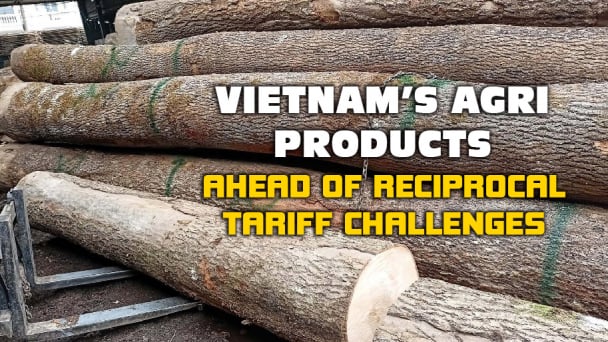
(VAN) Reciprocal tariffs present a significant obstacle to Vietnam's wood exports to the United States; however, domestic wood businesses are endeavoring to preserve their market share in this critical market.
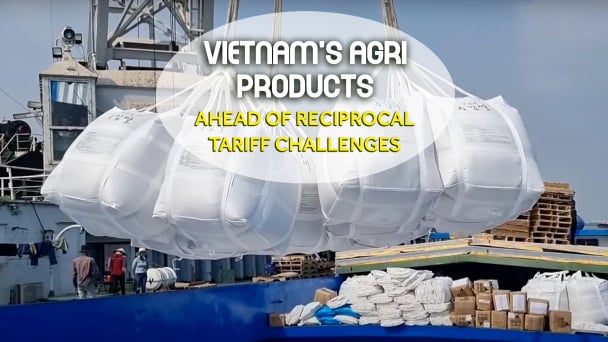
(VAN) Businesses in Vietnam are attempting to export rice to the United States ahead of the implementation of reciprocal tariffs, while remaining their optimism regarding this critical market.
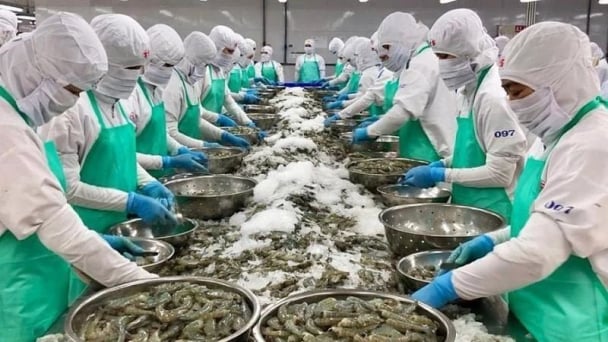
(VAN) From containers of cashew nuts, shrimp to in-depth technical dialogues, agricultural cooperation between Vietnam and the United States is entering a period of sustainable and two-way development.
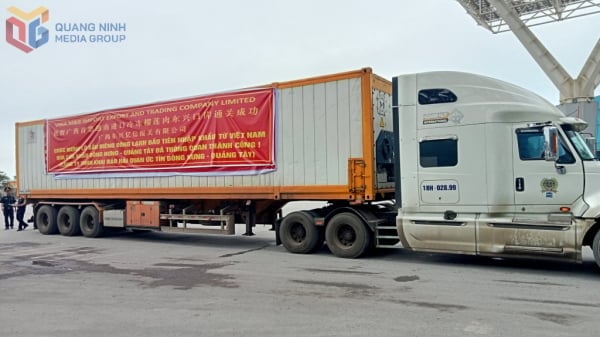
(VAN) After the talks on May 28, Vietnam successfully exported its first batch of frozen durians to China, marking a new milestone in agricultural trade cooperation between the two countries.
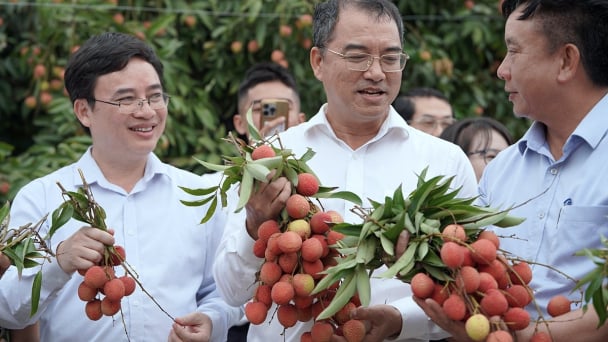
(VAN) Several major companies, such as Red Dragon and Ameii Vietnam, have signed purchasing agreements for the 2025 season, targeting markets including Japan, the United States, and the EU.
/2025/05/30/5010-5-173638_943.jpg)
(VAN) On May 29, at the GO! My Tho Trading Center, the Tien Giang Department of Industry and Trade, in collaboration with Central Retail Corporation, held the opening ceremony of the 3rd Fruit Festival 2025.